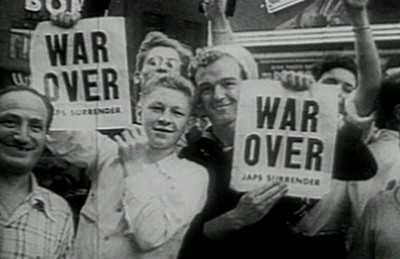Even with the celebration of the liberty of Europe we refer to the end of the war in May 1945, we ought not to forget that for hundreds of millions of people the war did not finish until the end of summer that year. In May, Japan still occupied vast territories and seriously repressed peoples across East Asia and the North Pacific. Wartime Japan is responsible for killing almost six percent of the Indonesian population, four percent of the Chinese and Indochinese populations, two percent of the Burmese population, totaling in 25 million death casualties and a six percent loss of the Japanese population itself. Months after the defeat of Nazi Germany, Japan still possessed an undefeated army, comprising of millions of troops with fully armed and fanaticized soldiers, facing the American and, later, the anti-fascist coalitional forces, all while denying any surrender request.
75 years ago, the largest scientific project of the world history ended with success of explosion of a nuclear bomb in Los Alamos. The two atomic bombs in August finally led to the capitulation of Japan, saving millions of continental and Japanese civil lives in the country, preventing military casualties comparable only to those suffered in Europe.
Historians and politicians are still debating the necessity and validity of the use of the atomic bombs, and there is no agreement on whether these bombs made for a better world after 1945. Life post 1945 has nevertheless certainly improved in the region. But we also need to take into account that the largest mass murders of post-1945 decades have also occurred in Asia, and that more than a billion of people in the region still live under various dictatorships today. Japan has since become part of the democratic world and is now a fully fleshed out constitutional democracy. However, just like in post 2010 Hungary, some voices might still be heard, urging us to reconsider Japan’s role in the second world war.
John Wesley Theological College pays tribute to the casualties of WWII, remembers those fighting for peace, and pays special tribute to the sacrifices of those fighting for universal liberty, thousand miles away from home.
We await all of those interested in these events and share memories with us, being either specialists or not, to commemorate and discuss with us on August 15th, 2020 at 6 pm (Central European Time). Please see for details below: http://oktatas.uni.hu/20200815.htm
